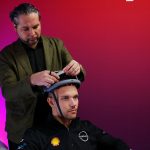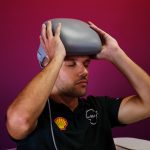Nissan has revealed the results of its innovative and ground-breaking Brain to Performance programme.
The findings of this initiative, which studies driver brain function and anatomy, show how brain training protocols can successfully improve the cognitive functions of Nissan Formula E Team drivers.
Furthermore, the data indicates that racing drivers who participated in the Nissan Brain to Performance training experienced enhancements in complex decision-making, stress and fatigue resilience, and quicker reaction times.
Pace and consistency
These improvements can help reduce on-track errors and maximise drivers’ pace and consistency.
Continual training could enable the Nissan Formula E Team drivers to reach the maximum potential of their brains in terms of clarity, which relates to their ability to perform in high-pressure environments, and speed, measuring how quickly they can process information.
Following these successful findings, Nissan Formula E Team plans to fully integrate these brain training protocols into its drivers’ overall training programs from Season 10.
The knowledge gained from both the research and application stages, with further adaptations, is expected to be applicable to the wider NISMO family beyond the FIA Formula E World Championship, including drivers in the Japanese Super GT series.
Furthermore, this programme highly accelerated the research towards developing a driving skill improvement system, accessible to all the drivers.
Dr Lucian Gheorghe, Nissan’s UX Innovation Senior Manager, said: “Since the beginning of the Brain to Performance programme, we knew there was great potential for this neuro-stimulating technology to help improve on-track performances of the Nissan Formula E Team drivers.
”Our research conducted through Seasons 7 and 8 showed that people’s abilities to learn and retain knowledge was significantly enhanced. The training protocols developed together with Plato Science and Wave Neuro further confirmed this, with improvements in the drivers’ cognitive functions.
Substantial benefit
“Following these encouraging results, we believe this technology could provide a substantial benefit far beyond the world of motorsports.
“Backed up by our earlier research at the University of Essex, Campus Bio-Tech and Braincredible, we are excited to uncover further opportunities for this to be used in Nissan’s electric vehicles of the future.
“I would like to thank all of our partners who have made this possible over the past few seasons and look forward to further developments over the coming years.”









